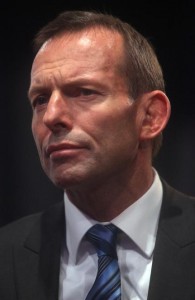
Photo credit; Midiman on Flickr
The Sydney Morning Herald recently published a step-by-step guide for who want to register their own small business online.
Here is what you need to do:
1. Decide on your business structure.
2. Apply for your Australian Business Number (ABN).
3. Check that your chosen business name is available.
4. Register your business name.
5. Register your website domain name.
Step 1: Decide on your business structure
When starting a business choose the business structure that best suits your needs.
Your business structure (aka applicant or entity type) refers to the way you will operate your business.
These include:
- Sole trader: an individual trading on their own
- Partnership: an association of people or entities running a business together, but not as a company
- Trust: an entity that holds property or income for the benefit of others
- Company: a legal entity separate from its shareholders.
You can change your business structure as your business grows.
—
Step 2: Applying for your Australian Business Number (ABN)
Your ABN is a unique number that allows you to identify your business to government and other businesses.
Applying for an ABN is free and should take about 30 minutes.
Things you will need to provide:
- your personal details
- your business information
- your associate details
- reasons for your application
- your business activity details and
- a declaration that the information you have provided throughout the application is true.
Your new ABN will appear on the completed application screen and will be ready for you to use right away.
—
Step 3: Checking your chosen business name is available
You can check the availability of a business name online at the Australian Securities & Investments Commission (ASIC) website.
To check if your proposed business name is available:
- Search business names register on the ASIC Connect website.
- From the drop down menu select ‘Check business name availability’.
- Enter the name you would like to search in the field below.
- Submit your search by pressing the ‘Go’ button.
If your name is not available, keep searching until you find one that isn’t claimed.
—
Step 4: Registering your business name
After you have found an available business name, register the name with the ASIC to secure it by:
- Going to the ASIC Connect website.
- Signing up to create an account with ASIC prior to beginning your application. Once you have your account you can begin the application.
- Completing the application. This should take you around 15-20 minutes to complete and at the end of the application you will receive confirmation that your chosen name has been registered.
Applying for a business name costs $33 AUD for one year or $76 for three years. Visit the ASIC website for more information on
business name payments and fees.
Your business name is only your identification and registering it
does not give you full rights over the name. You should
trade mark your business name, too.
—
Step 5: Registering your website domain name
Your domain name is your website address on the internet and gives your business an online identity or brand for your customers.
When picking a website name it’s best to go with a name that:
- represents your business
- is easy to remember, pronounce and spell
- is three syllables or less.
If you want to buy a .com.au or .net.au web address you will need to have an ABN.
To read more about this story, click here.



